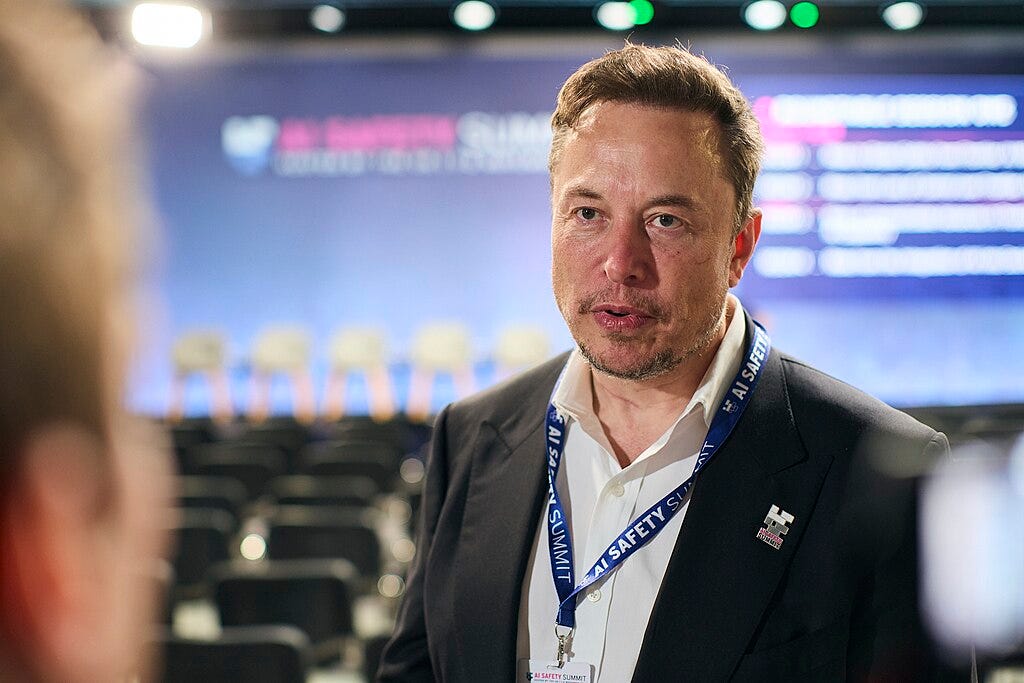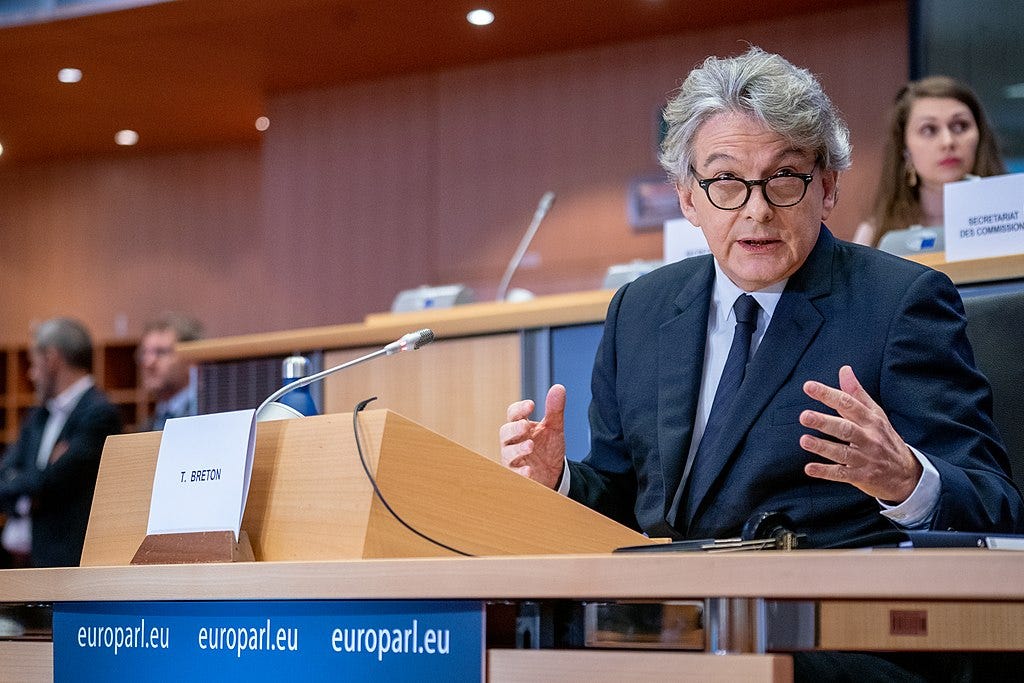Attack on Freedom of Expression: EU Threatens Musk's X with a Heavy Fine
While other social media platforms agreed to secretly censor users at the request of the European Commission, X did not. The Commission then took action against X.
The European Commission announced last Friday that Elon Musk-owned social media platform X is in breach of the European Union's Digital Services Act (DSA) and could face a hefty fine. According to Musk, however, the Commission offered them an illegal deal to secretly censor users in order to get out of the fine. X refused.
“The European Commission offered X an illegal secret deal: if we quietly censored speech without telling anyone, they would not fine us," Musk posted on his X account on Friday. “The other platforms accepted that deal. X did not,” he added.
“You can run but you can’t hide”
For taking freedom of expression seriously, Musk's X has been a constant thorn in the side of European Union (EU) officials, with European high authorities threatening the platform even before the DSA came into force in August last year. For example, European Commissioner for Internal Market Thierry Breton announced in May last year, when the platform – still called Twitter at the time – decided to leave the EU's voluntary code to fight disinformation online, that it would not be left alone. “Obligations remain. You can run but you can’t hide. Our teams are ready for enforcement,” he said.

The DSA gives the Commission the power to require the swift removal of content declared illegal from platforms. According to the DSA, illegal content is “any information that, in itself or in relation to an activity, including the sale of products or the provision of services, is not in compliance with Union law or the law of any Member State which is in compliance with Union law, irrespective of the precise subject matter or nature of that law”. The long explanatory part of the regulation adds that the concept of 'illegal content' must be considered and defined broadly for the purposes of its application. “In particular, that concept should be understood to refer to information, irrespective of its form, that under the applicable law is either itself illegal, such as illegal hate speech or terrorist content and unlawful discriminatory content, or that the applicable rules render illegal in view of the fact that it relates to illegal activities,” the explanatory memorandum states. In other words, the DSA gives the Commission and the relevant authorities in the Member States a fairly wide margin of interpretation as to what content could be declared illegal.
Platforms that fail to comply with or breach the obligations imposed on them under the DSA could face significant fines – up to 6% of the global turnover of the company hosting the platform. In the case of X, for example, it is estimated that the maximum fine would amount to around €200 million by the 2023 turnover. The Commission would also have the possibility of suspending the platform altogether in Europe in certain cases. We have written more about the dangers of the DSA here.
Lurking censorship intentions behind the allegations
In December last year, the Commission announced that X was the subject of proceedings for distributing 'illegal content' and 'disinformation'. It is the reference to 'disinformation' that should make us particularly vigilant. We are well aware from experience over the last few years that positions stigmatised and removed as disinformation or misinformation by social media platforms under the guidelines of the authorities have in fact often been completely truthful, and their circulation has been restricted only because the authorities considered them inappropriate for some reason. We have written about this kind of social media censorship before, for example here, here, here, and here.
This time ‘disinformation’ is not mentioned and the Commission seems to be pursuing technical issues, saying they relate to areas linked to dark patterns, advertising transparency, and data access for researchers.
For example, on the issue of dark patterns or deceptive design, X is accused that, unlike in the past, anyone can now buy a 'blue checkmark' to show that their account is 'verified'. This should not be the case, however, in the Commission's view, as people may mistakenly trust accounts with a 'blue checkmark' although they should not, according to their view. In other words, the Commission would like to see such 'blue checkmarks' only on the accounts of public authorities, mainstream media outlets, or particularly important people. “Back in the day, #BlueChecks used to mean trustworthy sources of information. Now with X, our preliminary view is that: They deceive users; They infringe #DSA. X has now the right of defence – but if our view is confirmed we will impose fines & require significant changes,” Breton commented on the Commission's announcement. The Commission's press release also states that, if its preliminary assessment is confirmed, X could face a fine of up to 6% of its global turnover.

However, as for the accusations about advertising transparency and data access for researchers, this too, according to commentators, is actually a desire to force X to implement censorship. In a social media post, Mike Benz, founder and CEO of the Foundation For Freedom Online, noted that the accusation that researchers don't have access to X's data doesn't really have anything to do with researchers or research. “They’re NOT researchers. They’re censorship activities & political operatives. This has been their plan the whole time – to use the DSA to force X to restaff the censorship squad fired when Elon (Musk - HS) took over,” Benz wrote on social media.
“Exactly,” Musk commented on Benz's post. “We look forward to a very public battle in court, so that the people of Europe can know the truth,” he added in another post in response to Breton's earlier statement.


